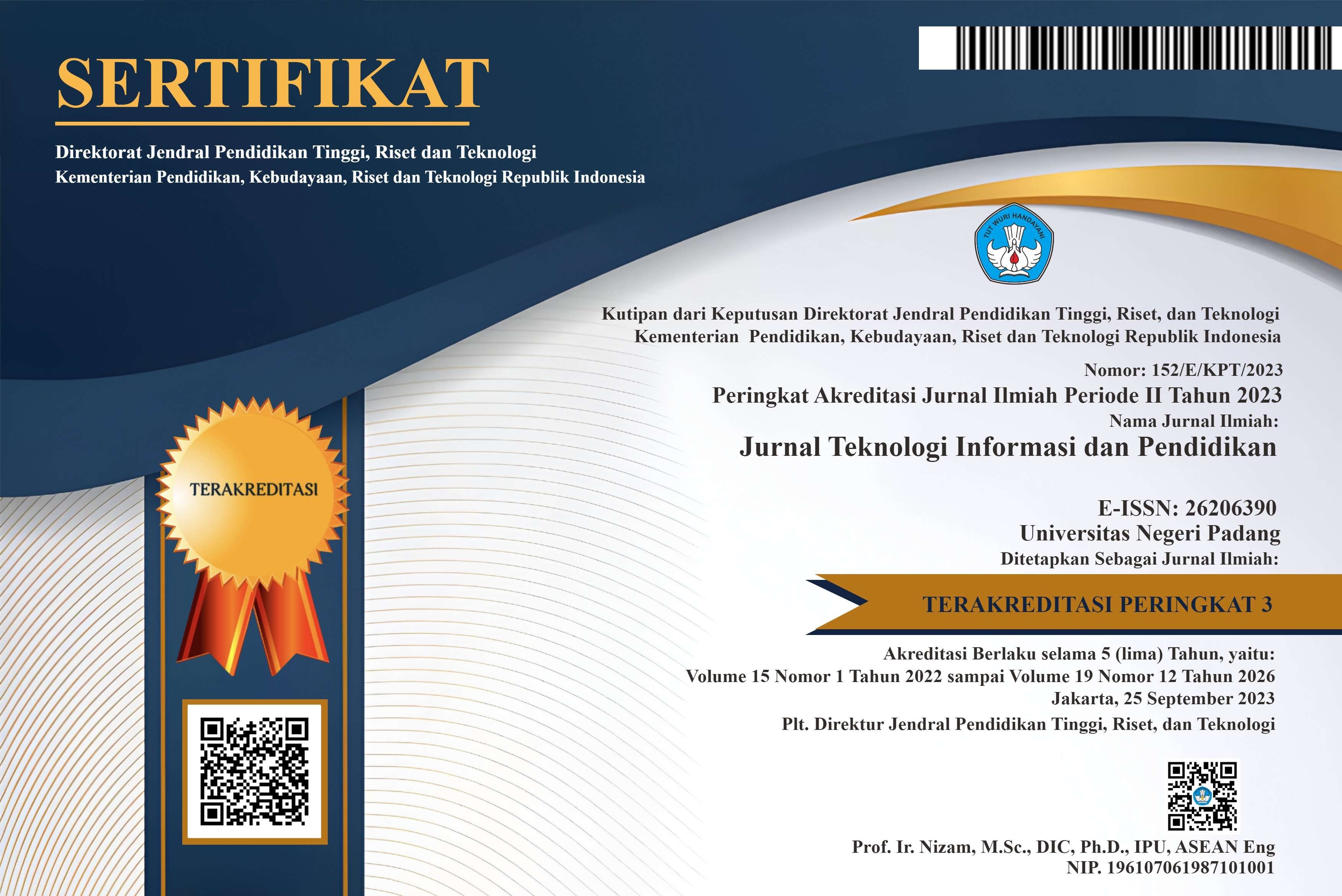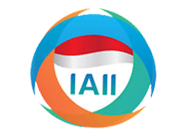The Impact of Digital Technology and 21st Century Skills on Employee Performance
Abstract
In the ever-evolving digital age, it is important to understand the impact of digital technology and 21st century skills on employee performance. In this systematic literature review, researchers explored the relationship between digital technology, 21st century skills and employee performance through synthesizing 24 relevant articles indexed by scopus, google scholar and dimension in the period 2019-2024. The review revealed a number of important insights into how digital technology adoption and 21st century skills development impact employee productivity and effectiveness across a range of organizational contexts. The researcher highlights the salient findings, challenges faced, and practical implications of this research. As such, this article makes an important contribution to our understanding of ways to improve employee performance in the changing digital age, and points the way for future research and practice in this area.
References
McKinsey & Company, “Technology Trends Outlook 2023,” McKinsey Digit., no. July, p. 5, 2023.
“APJII Jumlah Pengguna Internet Indonesia Tembus 221 Juta Orang,” Asosiasi Penyelenggara Jasa Internet Indonesia. Accessed: Jun. 05, 2024. [Online]. Available: https://apjii.or.id/berita/d/apjii-jumlah-pengguna-internet-indonesia-tembus-221-juta-orang
World Economic Forum, Global Gender Gap Report 2020: Insight Report. 2019. [Online]. Available: http://www3.weforum.org/docs/WEF_GGGR_2020.pdf
D. Vrontis, R. Chaudhuri, and S. Chatterjee, “Adoption of Digital Technologies by SMEs for Sustainability and Value Creation: Moderating Role of Entrepreneurial Orientation,” Sustain., vol. 14, no. 13, 2022, doi: 10.3390/su14137949.
Z. Chen, “Artificial Intelligence ‑ Virtual Trainer : Innovative Didactics Aimed at Personalized Training Needs,” J. Knowl. Econ., no. 29, pp. 2007–2025, 2025, doi: 10.1007/s13132-022-00985-0.
T. Chowdhury et al., “Review of Digital Technologies to Improve Productivity of New Zealand Construction Industry,” vol. 24, pp. 569–587, 2019, doi: 10.36680/j.itcon.2019.032.
X. Teng, Z. Wu, and F. Yang, “Research on the Relationship between Digital Transformation and Performance of SMEs,” Sustain., vol. 14, no. 10, pp. 1–17, 2022, doi: 10.3390/su14106012.
J. Polednov and I. Moln, “Heliyon Soft skills and their importance in the labour market under the ´ kov a athov a Luk a s Copu ˇ,” vol. 9, no. July, 2023, doi: 10.1016/j.heliyon.2023.e18670.
R. A. Garini and M. Muafi, “The effect of digital competence, work life balance and work stress towards service performance with moderation of emotional intelligence on employees of PT.X,” Int. J. Bus. Ecosyst. Strateg., vol. 5, no. 2, pp. 01–11, 2023, doi: 10.36096/ijbes.v5i2.403.
H. Patria, M. A. Fatchul Alam, A. Mulyadi, and A. Setyarko, “The Influences of Digital Technology, Digital Literacy, and Digital Marketing On The Performance of SMEs in Bekasi,” Cakrawala Repos. IMWI, vol. 6, no. 1, pp. 401–419, 2023, doi: 10.52851/cakrawala.v6i1.235.
D. D. Bhatta, M. Sarfraz, L. Ivascu, and M. Pislaru, “The Nexus of Corporate Affinity for Technology and Firm Sustainable Performance in the Era of Digitalization: A Mediated Model,” Sustain., vol. 15, no. 12, 2023, doi: 10.3390/su15129765.
T. A. Fahmi, J. H. Tjakraatmadja, and H. Ginting, “An Empirical Study of Emerging Digital Culture and Digital Attitudes in an Established Company,” vol. 16, no. 2, pp. 342–362, 2023.
Ö. Açıkgöz, A. Aslan, and A. Günay, “Evaluation of the level of problem solving skills of Turkish higher education graduates in technology ‑ rich environments,” Educ. Technol. Res. Dev., vol. 70, no. 5, pp. 1893–1910, 2022, doi: 10.1007/s11423-022-10120-0.
M. Munsamy, N. Dhanpat, E. N. Barkhuizen, S. Africa, and E. Barkhuizen, “The development and validation of a digital leadership competency scale,” pp. 1–15, 2019.
D. E. Experience and I. N. Oman, “Business, Management, and Digital Employee Experience and Organizational Performance : a Study of the Telecommunication Sector,” vol. 21, no. 2019, 2023.
F. Faisal, S. Ibraheem, and S. Al-hawary, “International Journal of Data and Network Science,” vol. 7, pp. 911–920, 2023, doi: 10.5267/j.ijdns.2022.12.020.
N. Ameen, S. Papagiannidis, A. R. S. Hosany, and E. Gentina, “It ’ s part of the ‘ new normal ’ : Does a global pandemic change employees ’ perception of teleworking ?,” vol. 164, no. April, 2023, doi: 10.1016/j.jbusres.2023.113956.
C. Caraiani, C. I. Lungu, C. Dascalu, and C. Dascalu, “The impact of telework on organisational performance , behaviour , and culture : evidence from business services industry based on employees ’ perceptions,” Econ. Res. Istraživanja, vol. 36, no. 2, p., 2023, doi: 10.1080/1331677X.2022.2142815.
A. Tziner and M. Persoff, “The interplay between ethics , justice , corporate social responsibility , and performance management sustainability,” no. February, pp. 1–13, 2024, doi: 10.3389/fpsyg.2024.1323910.
O. Ybarra, “The skills that help employees adapt : Empirical validation of a four-category framework,” pp. 1–23, 2023, doi: 10.1371/journal.pone.0282074.
J. Bartolomé, P. Garaizar, and X. Larrucea, A Pragmatic Approach for Evaluating and Accrediting Digital Competence of Digital Profiles : A Case Study of Entrepreneurs and Remote Workers, vol. 27, no. 3. Springer Netherlands, 2022. doi: 10.1007/s10758-021-09516-3.
G. Wang, Y. Niu, Z. Dato, Y. Choy, and Z. Yan, “Heliyon Unlocking digital potential : Exploring the drivers of employee dynamic capability on employee digital performance in Chinese SMEs-moderation effect of competitive climate,” Heliyon, vol. 10, no. 4, p. e25583, 2024, doi: 10.1016/j.heliyon.2024.e25583.
C. Chen, “Influence of Employees ’ Intention to Adopt AI Applications and Big Data Analytical Capability on Operational Performance in the High ‑ Tech Firms,” J. Knowl. Econ., no. 151, 2023, doi: 10.1007/s13132-023-01293-x.
V. S. Litvinenko, “Digital Economy as a Factor in the Technological Development of the Mineral Sector,” Nat. Resour. Res., vol. 29, no. 3, pp. 1521–1541, 2020, doi: 10.1007/s11053-019-09568-4.
Copyright (c) 2025 Jurnal Teknologi Informasi dan Pendidikan

This work is licensed under a Creative Commons Attribution-ShareAlike 4.0 International License.















.png)














